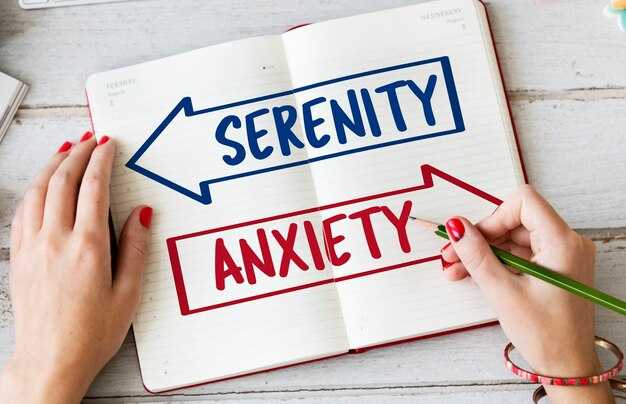You have arrived at a place where the confusion and emotional strain feel overwhelming. You keep asking yourself why someone who says they care seems to pull away the moment things feel real. It isn’t that they don’t feel anything — they do — but those feelings terrify them. Avoidant people live inside a quiet battleground between wanting connection and fearing the loss of themselves in it. For them, closeness equals vulnerability, and vulnerability equals danger. They crave intimacy, yet the instant they sense it, their defenses rise and they retreat. Not because they don’t want you, but because they don’t trust what love might do to them. When that happens, you often begin to doubt yourself — wondering whether you did something wrong or whether you were ever enough to make them stay. You overgive, try to fix things that aren’t yours to fix, and scramble to hold onto something that keeps slipping through your fingers.
Here’s the truth: you cannot repair an avoidant by constantly proving your worth. The more you chase, the more you confirm their belief that love threatens control. Avoidants thrive on distance because it offers the illusion of safety. As long as they can decide how near or far the relationship will be, they feel secure — and that security only exists when you play the pursuer. When you chase, they run. When you overextend, they pull back further. Not out of cruelty, but because your pursuit reinforces their fear that closeness equals pressure. They begin to equate intimacy with engulfment, love with obligation, and connection with loss of independence. That fear does not originate from you; it is rooted in past experiences where vulnerability once led to pain, shame, or rejection. But if you keep trying to earn love through overgiving, you will only enable the pattern that drains you.
The only way to shift this dynamic is to stop trying to manage their emotions and start managing your own — to redirect your attention from what they do to what you allow. Real change rarely comes when avoidance suddenly transforms; it happens when you change. When you raise your own standards and decide that your peace is non-negotiable, power shifts. Not through manipulation or silent games, but through calm, considered boundaries. The moment you stop chasing and simply stand still, you break the dance that feeds avoidance, because they can no longer predict how you will respond. They no longer have access to your anxiety, fear of loss, or need for reassurance — they are left face-to-face with their own avoidance. And that is exactly what they have spent their life trying to escape.
An avoidant person feels safe only when they remain in control, and that control functions as an emotional shield. The instant you stop reacting, that shield begins to crack because they sense loss of control. Not because you are playing games, but because you finally embody inner peace. You are no longer clinging to what keeps slipping away. You no longer fear the distance, and that shift matters. When you cease the chase, the avoidant must confront what they have been avoiding all along: their fear of connection. When you step back not out of anger but from self-respect, they experience it differently: not as rejection, but as accountability, as a mirror. Avoidance doesn’t hate love; it fears it might not survive it. When you stop cushioning that fear and refuse to make their comfort your responsibility, something powerful happens. Either they move toward the steadiness you’ve embodied, or they remain outside it. Both outcomes are wins, because the goal is not to preserve avoidance; it is to stop sacrificing yourself to make them comfortable.
You are not here to teach someone how to love at the cost of your dignity. You are here to create an emotional standard where love feels safe, mutual, and grounded. That begins the moment you understand that boundaries are not ultimatums — they are clarity. They are truth. They mark the point where you stop chasing potential and begin protecting your peace. Boundaries are the instant your worth outweighs your fear of losing someone. When you set them, you are not saying “I do not love you.” You are saying, “I love myself too,” and “I’m willing to meet you halfway, but I will not walk the whole path alone.” Boundaries create emotional balance, and it is this balance that forces an avoidant to choose. They can no longer sit in the middle, offering just enough to keep you hopeful but not enough to make you feel safe. Boundaries remove the gray zone and reveal the truth.
Avoidance does not respond to pressure but it does respond to steadiness. When you stand in your truth — calm, steady, and clear — they feel a different energy. There’s nothing frantic or demanding about it; it is composed and consistent. That is the presence of someone who knows their worth, who won’t beg to be chosen, who has already chosen themselves. That steadiness unsettles an avoidant because they have learned to rely on your emotional reactions, tears, explanations, or arguments to reassure themselves that they still hold emotional leverage. But when you stop reacting and simply state your needs — “this is what I require to feel respected” — and then follow through, you remove the game entirely. You stop trying to extract peace from chaos and instead build peace through clarity. That is the pivot point where everything changes.
Boundaries are not walls that forbid people from entering; they are doors that open only to what fits. As you tighten those doors, an avoidant can no longer hide behind ambiguity. They must either meet you in emotional maturity or withdraw to their comfort zone. In both cases, you gain clarity. Often, avoidants assume people will not truly hold them accountable without drama or punishment. We’ve all seen others chase or rage when threatened. So when you set boundaries calmly and without hostility, you disrupt that script. You can no longer be cast as needy or controlling. You leave them to wrestle with their discomfort, and that discomfort can push them toward growth. Saying “I care about you, but I also care about myself,” isn’t rejection — it is truth. This is what real love looks like. Love without limits becomes chaos; boundaries without love become walls. You need both compassion and structure. An avoidant may not acknowledge it, but they crave structure: emotional safety and someone who won’t lose themselves just to keep them close.
Holding your position teaches a powerful lesson: connection does not necessarily require sacrificing independence, and intimacy is not the same as control. Some avoidants will choose distance, and that is not a loss — those who walk away when you maintain standards were never prepared to love you fully. Your boundaries simply reveal what was always true. That is the quiet beauty of boundaries: they filter out what is inauthentic before more of your time is wasted. They save you from trying to mend those who refuse to heal and protect your emotional energy so it remains available for people capable of meeting you openly, not from fear.
As you start living by your values rather than your wounds, something inside changes. You stop reacting. You stop clinging to potential. You stop confusing intensity for love. That inner shift shows up in everything you do, and avoidants will feel it acutely. The more grounded you become, the more obvious their old patterns appear to them. Responsibility for change then lands back on them: do they keep running from love, or will they turn toward it? This is why boundaries are pivotal. They are not meant to control others; they are about reclaiming yourself. They declare what you will and will not accept without apology, and once you know your worth, you stop chasing confusion and start attracting clarity. Maybe, for the first time, an avoidant realizes that the connection they feared was never a threat — it was a mirror, showing them what true emotional strength looks like: calm, confident, unshaken by chaos.
When you embody that — when your peace is non-negotiable — avoidants either step into authentic emotional honesty or step back to avoid accountability. When that choice is made, do not pursue either outcome. Stand steady, because you finally understand that real love is not about convincing someone to stay; it’s about being strong enough to let them go if they won’t meet you. That is where true power begins: the shift from reaction to regulation, from chase to choice. At that level of inner stability, you no longer respond to emotional confusion with more confusion. You begin to see that love without structure becomes chaos, and connection without clarity becomes control — and that is where boundaries come in, not as barriers but as mirrors of truth.
The first truth you learn is that emotional availability must be earned, not freely handed out. Perhaps you were raised to believe love requires endless giving, unwavering loyalty, or sticking around no matter what. But real love doesn’t demand proof; it grows through reciprocity. If you find yourself always reaching out while they withdraw, always explaining while they avoid, always forgiving while they repeat cycles, you are no longer loving — you are enabling. You teach them that your presence will always outmatch their effort, which keeps you both stuck. Avoidants learn to stay safe in relationships by withholding, keeping one foot out the door; they give just enough hope to keep you invested but not enough to make you secure. If you love deeply, you might try to close that gap by appearing more when they return after long silences. But each time you reward inconsistency with more availability, you teach them love doesn’t require being present.
So the first boundary is quiet but firm: stop granting emotional access to those who haven’t earned it through consistency. Your time, energy, and heart are privileges, not guarantees. When you stop overextending, you are not being cold — you are being discerning. You set a new rhythm for the relationship: mutual effort instead of emotional rescue. In that balanced space, the avoidant begins to experience something new — responsibility — because for the first time, you are no longer filling the silence on their behalf. You aren’t smoothing the distance with explanations or constant reassurance. You let the distance speak, and that silence becomes their mirror. They start to notice what happens when you stop trying to fix everything: the gap between you stops feeling like freedom and starts to feel like loss. Not because you are punishing them, but because your absence carries weight — the absence of chaos, of frantic pursuit, of someone making their life easier. That quiet forces them to face the void they’ve been avoiding. Some will step forward then, showing small, real efforts: reaching out, opening up, asking questions. Don’t rush or overpraise — simply mirror back with equivalent effort. This slower, steady reciprocity builds balance.
Others will retreat further, interpreting your boundaries as rejection. That is their perception, not your reality. You are not rejecting them; you refuse to erase yourself again. The truth is that those who are capable of growing with you will eventually recognize the value of your quiet strength and realize your silence isn’t punishment but a signal that something deeper is required. They will learn emotional availability is a shared responsibility, and then the relationship can finally evolve — not through pressure but through presence.
The second boundary follows from refusing to accept mixed signals. If emotional availability determines who deserves your space, then emotional clarity decides who deserves to remain there. Avoidance often depends on ambiguity: one day warm and open, the next distant or unavailable. That inconsistency breeds confusion, keeping you locked in decoding mode and equating unpredictability with chemistry. But real connection does not require guessing; it requires understanding. So the second boundary is a line of clarity: if someone cannot be consistent, they cannot stay close. Mixed signals are not a personality trait — they are a lack of emotional integrity. When someone says all the right things but never follows through, they show that their comfort matters more than your peace. Once you see this, it becomes your responsibility to protect yourself not by confronting endlessly for clarity, but by stepping back until words match actions. Therein lies your power — not in arguments, but in discernment.
A person who’s avoidant might say they need time or space, and that should be honored. But they don’t have the right to hold your emotional investment hostage while they sort themselves out. If they want distance, they can have it, but understand you will not wait in limbo. You’re not slamming the door; you’re simply no longer standing at it. Clarity like this transforms the dynamic: an avoidant can no longer use ambiguity to keep you close. They learn that your care is not guaranteed, your emotional labor is not infinite, and inconsistency has consequences. Some will step up, communicate clearly, and match your effort; others will fade. Either way, you gain peace — because by refusing to tolerate contradiction, you stop teaching people that your love can coexist with confusion. You redefine what connection means: not bewilderment, but foundation.
Jordan Peterson often speaks about responsibility — not only externally but the kind that comes from being honest about what you allow. Taking responsibility for your peace means you stop blaming others for patterns you’ve repeatedly accepted. You begin to understand peace is not given — it is protected by the choices you make. So when you draw these boundaries and declare you won’t stay where clarity is replaced by confusion, you aren’t being harsh. You are being direct. You are saying your emotional wellbeing matters more than the illusion of connection. That honesty changes everything.
Avoidants often fear boundaries as rejection. Yet boundaries are invitations — invitations into honesty, into something real, into emotional accountability. Those capable of growth will feel that invitation and, even if they don’t respond perfectly at first, they will begin to try. They will test vulnerability awkwardly and tentatively, but authentically, and slowly — built on mutual respect — real connection can form. Others who retreat further into silence or avoidance simply reveal what the boundaries were designed to show: who can walk with you and who isn’t ready. You no longer need answers from people who communicate through confusion. You no longer beg for a clarity that must be freely given. You’ve moved beyond that. And the beauty of this clarity is that it reflects back onto you: you become clearer in your intentions, calmer in your energy, and stronger in your presence. Uncertainty no longer masquerades as love. You start craving peace instead of drama, honesty instead of intensity, and consistency instead of mere possibility. That is how healing feels — not flashy but steady; not theatrical but safe.
The safety you build inside paves the way for the next boundary, the one that strengthens your power even further. Once you stop tolerating contradictions, the next step is to ground your self-worth in actions, not words. Begin looking not at what people say they feel, but at how they show it. Value what is proven, not what is promised. Avoidants are often adept at using words as shields: when they sense you pulling away, they may say enough to draw you back — they’ll talk about missing you, needing time, or how complicated things are. Those words can spark hope, but without sustained follow-through, they are maintenance, not growth. They preserve accessibility rather than build commitment. That’s why the third boundary is vital: prioritize deeds over declarations. Let effort, not emotion alone, guide your decisions, because real effort reveals itself across small, consistent choices. When someone truly cares, you will not have to decode them; their behavior will make their intentions clear. This rule applies to you as well: you shouldn’t need constant verbal reassurance to feel safe. Trust patterns, not promises. Once you reach that level of self-awareness, the way you operate changes: you observe rather than react. You watch how events unfold instead of chasing explanations. Emotional maturity means letting time reveal truth instead of forcing claims to be true.
If an avoidant says they will do better, hear them once — but watch twice. When they say they care, watch how they act. Do they create space for connection or disappear when attention shifts? Do they show up when it’s hard or only when it’s convenient? Their consistency — or lack of it — will tell you everything about their readiness for love. When words and actions don’t align, your silence will speak louder than any confrontation. You no longer have to argue, beg, or clarify; you simply stop participating in the contradiction. Silence rooted in self-respect becomes one of the most powerful forms of communication: it says, “I see the truth and I do not need to force you to face it with me.”
Often boundaries are misread as withdrawal, but the distance you create is not avoidance — it is clarity. You no longer play their hot-and-cold game; you step into a space of peace where only genuine energy can live. That calm, discerning presence becomes magnetic precisely because it’s not manipulative — it’s truthful. The more firmly you hold your values, the clearer the contrast between your steadiness and their chaos becomes. You are the mirror that reflects their patterns back to them without judgment, and that mirror forces a decision: evolve or exit. That is where your power lies. When you no longer need their behavior to validate your worth, you stop being emotionally enslaved by their contradictions. You are free. You no longer need to manufacture closure because your peace is closure. You no longer need reassurance because your boundaries provide it. That is when the fourth boundary emerges to safeguard your emotional energy.
Many people relapse here: they feel powerful for a while, then revert to old compulsions of over-explaining, over-feeling, or over-analyzing. This happens when emotional energy is left unguarded, and unpredictability begins to drag it down. Avoidance flourishes in unpredictability because it allows emotional distance to remain intact. If they can keep you guessing, they never have to face the fear of connection. Protecting your emotional energy removes unpredictability’s power. That doesn’t mean you stop caring; it means you care selectively. You stop pouring into relationships that do not flow back. You stop responding to avoidant behaviors that previously triggered you. Don’t chase when they retreat. Don’t argue when they stray. Don’t try to decode the silence. Let their actions define their role in your life. This isn’t coldness — it’s maturity. Emotional discipline is not repression; it’s direction. It means feeling deeply without losing yourself, choosing to respond rather than react, pausing instead of pleading, and observing instead of spiraling.
Jordan Peterson often frames life as balancing order and chaos — and your emotional world follows the same pattern. Love without boundaries turns into chaos; boundaries without compassion calcify into rigidity. Protecting your emotional energy means finding the middle ground where you can love without losing yourself, care without collapsing, and stay open without being consumed. One thing most people miss is that protecting your emotional energy is not about controlling others but about managing what you permit. Peace is built through choices, not chance. You determine how much access others have to your feelings, how deep you will engage with their uncertainty, and whether their distance will become a distraction. At this level of emotional clarity, avoidance loses its potency because its pattern only works when you react to it. When you stop reacting, they must face themselves and feel the emptiness their distance creates. That can spark transformation — not only for them, but for you. Each time you defend your peace rather than chase chaos, you grow stronger; each moment you choose silence over conflict you fortify your self-worth; every time you refuse to absorb someone else’s confusion you preserve your clarity. These are quiet victories, but deeply meaningful ones.
An avoidant may notice and feel unsettled by your change: some will admire your calm; others will resist. That is fine. Your role is not to manage their emotional development; your role is to embody the standard that makes growth possible. Stick to the line that says, “I will not sacrifice my emotional health for temporary closeness.” When you protect your energy, you stop trying to win love and start drawing alignment. The right people will feel safe around your boundaries; the wrong ones will feel constrained — and that is precisely as it should be. Boundaries are not put in place to keep love out; they are designed to protect the version of you that finally understands love. Love is not about infinite access; it’s not about availability at any cost. It’s about creating a space where both people can feel free, secure, and seen — not depleted. If someone interprets your peace as distance, let them. Those who are meant for you will see it as strength.
As you grow quieter, things begin to reveal themselves more gently. You stop chasing understanding and it begins to reveal itself. You stop chasing closure and it arrives through clarity. An avoidant will either move toward you, drawn by the stability you represent, or drift away, unable to match it. In either case, remain centered. That is emotional mastery: not the absence of feeling but the wisdom to place your feelings in the right context. You learn that peace is not something others give you — it’s something you refuse to relinquish. And as you deepen this phase, your identity shifts. You are no longer someone who reacts to distance with fear; you respond to it with dignity. You stop trying to fix what broke you and begin constructing a life where peace can stay. This energy will not seek validation; it deserves respect. Which then sets up the final transformation: the fifth boundary, the one that crowns all that precedes it and requires the greatest strength, courage, and self-love.
Eventually you realize that all the self-work, clarity, and patience lead to one inescapable truth: when respect is lost, you walk away. This ultimate boundary isn’t about anger or pride; it’s about freedom. There comes a moment, often quietly and without drama, when something inside shifts and you stop arguing with reality. You cease explaining, justifying, and proving. It’s not bitterness that rules — it’s acceptance: the deep understanding that love without respect is not love at all but self-erasure. The fifth boundary is the hardest thing to do: to know when to leave. Sometimes, no matter how calm, patient, or understanding you are, some people will never meet you there. They will continue to test limits because they believe you’ll never enforce them. For a long time, maybe you didn’t — you stayed after being hurt, gave chances after promises were broken, explained yourself to people who never tried to understand. But the day you realize love cannot flourish without respect is the day you finally free yourself.
Walking away does not mean you stop caring; it means you care for yourself enough to reject emotional crumbs and call them a meal no longer. It means you have learned the difference between patience and self-neglect, between tolerance and losing your worth. It’s not rejection, it’s redirection — a quiet voice inside saying, “I have learned what I needed here.” Avoidants may mistake silence for defeat, but when you leave, you are not defeated — you are leading. You demonstrate to them and to yourself what true accountability looks like. You prove that peace is more important than proximity. Because proximity without respect is captivity. When you leave with peace rather than pain, everything shifts. You stop fighting for someone’s potential and start protecting your purpose. You no longer need their understanding of the harm they caused, because your growth speaks for itself. Maybe, in time, the avoidant realizes what they lost and returns ready and self-aware — but by then, you will no longer be waiting. You will have moved beyond the need to be chosen because you have chosen yourself. That is the deepest transformation: when you stop trying to control results and learn to trust alignment.
Every boundary, every silent pause, every step back was never about punishing anyone — it was about raising your standards and teaching the world how to treat you. Love without limits is chaos; boundaries without follow-through are only noise. The willingness to leave gives every other boundary its power. Without it, everything else is just a warning sign that you will do nothing. But when you enact that final line, the world begins to respond differently. Leaving is not a surrender of hope; it is the ultimate declaration of faith — faith that the love meant for you will never require you to retreat. Faith that peace is not something to be earned, but something to return to. Faith that walking away from what disrespects you opens space for what will honor you.
You will feel that change in your body first: a quiet replacing the old anxiety. You’ll stop checking your phone, stop rehearsing what you’ll say if they get in touch, stop replaying the last exchanged words, because deep down you will know it is over. You’ll understand the departure wasn’t an escape — it was a homecoming to yourself. That is what self-respect feels like: not arrogance or anger, merely calm strength. Avoidants often live in fear of abandonment yet create it by pushing away what they want most. When you walk away, you do not abandon them; you simply stop enabling their self-sabotage. In that absence something profound can happen: they finally see respect in action. They witness emotional maturity and what true boundaries accomplish — dignity, not distance. Perhaps that becomes their awakening. Maybe your calm becomes the mirror that finally forces them to face the pain they were evading, the lesson presence could not teach them. Absence may show them what your presence could not.
Love is not about control; it is about accountability. Whether an avoidant learns this or not, you have already won. Leaving is about returning home to yourself, reclaiming the identity that was worn thin by another’s contradictions. It’s recognizing that love should not be tension, confusion, or endless waiting. It should feel freeing, understood, and generative. You begin to see your old patterns as lessons, not failures: you discover you were not too much; you simply gave too much to someone who could not receive it. Loving wasn’t the problem — loving someone who hadn’t learned to stay was the challenge. As that awareness settles, bitterness melts and forgiveness follows — not to invite them back, but to release yourself.
The final and quiet clarity emerges: boundaries were never about controlling others. They were about freeing you. Each limit removed another layer of illusion. You discerned who could meet you and who could not, who loved you for your peace and who loved you for your compliance. You learned the people who truly value you will never make you beg for respect, clarity, or care. Boundaries do not push people away; they filter out the wrong ones and make room for alignment — relationships built on truth instead of control, presence instead of distance, mutual growth instead of silent suffering. This is the truth many never grasp: boundaries are not walls. They are doors. They open to what is real and close to what is not.
Avoidants may initially see your boundaries as a threat, but over time many will come to feel them as an invitation — an invitation to face what they have been running from and to enter love with courage rather than fear. If they can’t, that is okay. You have already taken the brave step: you learned that self-respect is not selfish but sacred, and that peace is something you protect from inside. You learned that love should not mean waiting to be chosen. It means becoming someone who no longer waits to be chosen. When you reach that kind of peace, you no longer fear loss, because anything you lose by standing in your truth was never meant to endure.
So if you now stand at a crossroads after offering compassion, understanding, and endless chances, and you still meet confusion, silence, or disrespect — this is your moment. It’s not a time to chase, it’s a time to choose. Choose peace, even if it’s quiet. Choose respect, even if you stand alone. Choose yourself, even though it hurts. That pain will pass, but the peace that follows will last. One day you will look back and understand that every boundary you held was not a loss of love but an education in what love truly requires. You shed the version of yourself that believed you had to earn worth. You became the person who finally realized true connection doesn’t rely on chaos to feel authentic. It only requires courage: the courage to say no when it would be easier to stay silent, the courage to remain calm when temptation to explain rises, the courage to walk away when respect evaporates. It is this courage and self-respect that compel clarity. When you stop bending your standards to keep people nearby, the right people come to meet you. The avoidant who is ready will step forward; those who are not will step away. And you will stay — centered, grounded, calm, and unwavering in your truth. That is the final transformation: you no longer chase love; you attract it by embodying what you were searching for. Remember: when you choose peace, you never lose anything real. What’s intended for you will honor your worth, meet your boundaries, and never make you doubt yourself again. The right person will not run from your strength — they will rise to it.


 Do THIS and Avoidants Either STEP UP or STEP OUT (5 Boundaries) | Jordan Peterson">
Do THIS and Avoidants Either STEP UP or STEP OUT (5 Boundaries) | Jordan Peterson">






 Avoidant Attachment: This "Shift" Isn’t Rejection. It’s Love (Don’t Walk Away) | Jordan Peterson">
Avoidant Attachment: This "Shift" Isn’t Rejection. It’s Love (Don’t Walk Away) | Jordan Peterson">
 Commitment means MORE than not Getting Divorced">
Commitment means MORE than not Getting Divorced">
 Why Avoidants Only Chase You When These 3 Hidden Needs Are Triggered | Avoidant attachment style">
Why Avoidants Only Chase You When These 3 Hidden Needs Are Triggered | Avoidant attachment style">
 I Had No Friends… But Here’s What Finally Changed">
I Had No Friends… But Here’s What Finally Changed">
 When the Bedroom becomes a Chore…">
When the Bedroom becomes a Chore…">